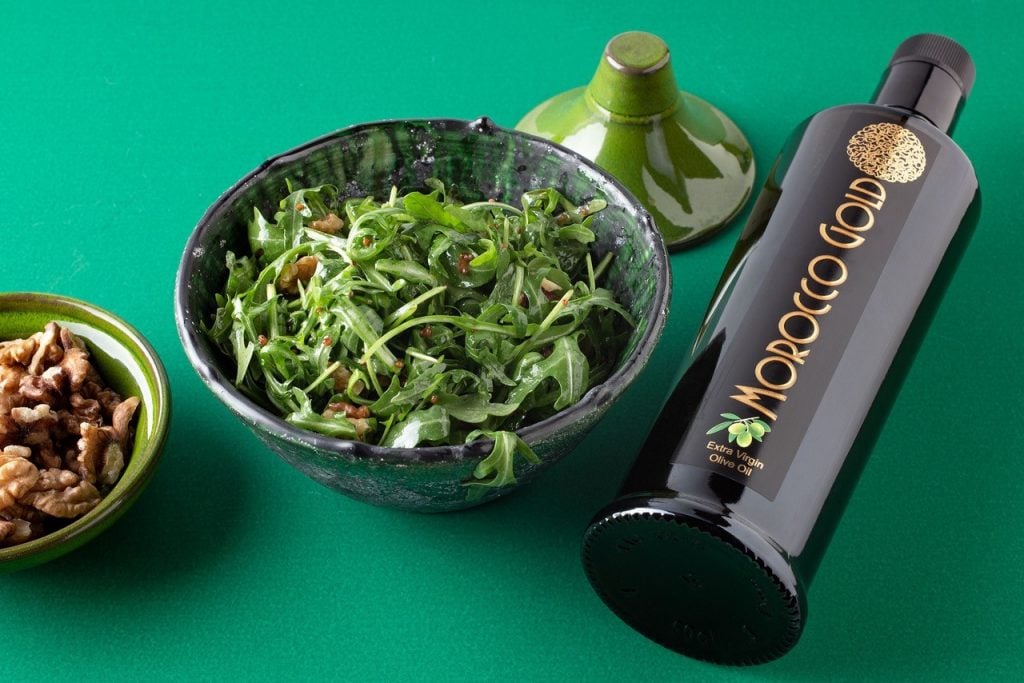Polyphenol Rich Mediterranean Diet Can Reduce Impact Of Visceral Obesity

Summary
- New study shows polyphenols in Mediterranean Diet could reduce obesity related disease.
- Polyphenols in ‘Green Mediterranean Diet’ , including extra virgin olive oil, can promote visceral adiposity regression.
- Visceral body fat is stored deep inside the body and can trigger various pathologic conditions.
- Quality extra virgin olive oil contains high concentration of polyphenols
Following a Mediterranean Diet, rich in polyphenols, could play a crucial role in mitigating the impacts of visceral adiposity, which is widespread among obese people.
According to results of a new study reported in The Olive Oil Times, the Mediterranean diet is a known source of polyphenols, which the researchers believe might impact adiposity.
Visceral Body Fat And How The Mediterranean Diet Can Help
Visceral body fat, also known as ‘hidden’ fat, is fat stored deep inside the belly, wrapped around the organs, including the liver and intestines. It makes up about one tenth of all the fat stored in the body. Most fat is stored underneath the skin and is known as subcutaneous fat.
Visceral obesity is a triggering factor for multiple pathologic conditions such as cardiovascular disease and metabolic syndrome. It is also associated with developing prostate, breast and colorectal tumors.
The study, published in BMC Medicine, explored the impacts of what they defined as a “green-Med diet, twice fortified in dietary polyphenols and lower in red and processed meat.” The diet “may be a potent intervention to promote visceral adiposity regression,” the researchers wrote.
The details of the study were set out by The Olive Oil Times as below:
Over 18 months, the researchers followed 294 subjects with an average body mass index of 31.2 and an age of 51. Eighty-eight percent of them were men. The subjects were divided into three groups. The first followed the healthy dietary guidelines, the second adhered to a traditional Mediterranean diet, and the third followed a green-MedDiet. All three groups were equally calorie-restricted.
The subjects were also asked to exercise and consume 28 grams of walnuts daily, adding 440 milligrams of polyphenols to their diets.
The green-Med group was also asked to consume three to four cups of green tea daily, and a 100-gram Wolffia globosa shake.
“The green protein shake was partially substituted for dinner, replacing beef or poultry protein source,” the researchers wrote. Wolffia globosa is an aquatic plant high in protein, fiber and fat.
During the observational period, the researchers used magnetic resonance imaging to measure the abdominal adipose tissues, which demonstrated that visceral adiposity tissue was reduced by 4.2 percent in the healthy dietary guidelines group, 6 percent in the MedDiet group and 14 percent in the group following the green-MedDiet.
Weight loss and waist circumference decreased by 4.7 percent in the MedDiet group and 5.7 percent in the green-Med group.
According to the researchers, higher green tea, walnut, and Wolffia globosa consumption paired with lower red meat intake resulted in higher total plasma polyphenols and elevated urine polyphenols. These were significantly associated with a more significant loss of visceral adipose tissue.
Researchers explained that the Mediterranean diet is a reference point for the study as it includes plenty of foods rich in polyphenols. The eating pattern has been shown to reduce visceral adiposity regardless of weight loss when associated with physical activity.
The Green Mediterranean Diet And Extra Virgin Olive Oil
In the Mediterranean Diet, polyphenols come from extra virgin olive oil, vegetables, fruits, legumes, nuts, red wine and whole-grain cereals.
In essence, The Green Mediterranean Diet is very similar to the traditional Mediterranean diet with a few small alterations to increase its eco-friendly status and make it potentially even healthier too.
Where the Mediterranean Diet advocates limited amounts of red meat, the Green Mediterranean Diet cuts out red and processed meat completely. In addition it promotes inclusion of green tea and a specific type of green shake containing a plant called Wollfia globose (aka Asian watermeal or duckweed).
According to livestrong.com, poultry and fish replace beef and lamb and also calls for a few cups of green tea each day, a small handful of walnuts.
The emphasis, from a health point of view, on a high intake of polyphenols makes it the perfect fit for inclusion of a quality extra virgin olive oil. Morocco Gold is bursting with polyphenols (or antioxidants) which bring a whole host of health benefits, including fighting infection, lowering cholesterol and fighting inflammation.
